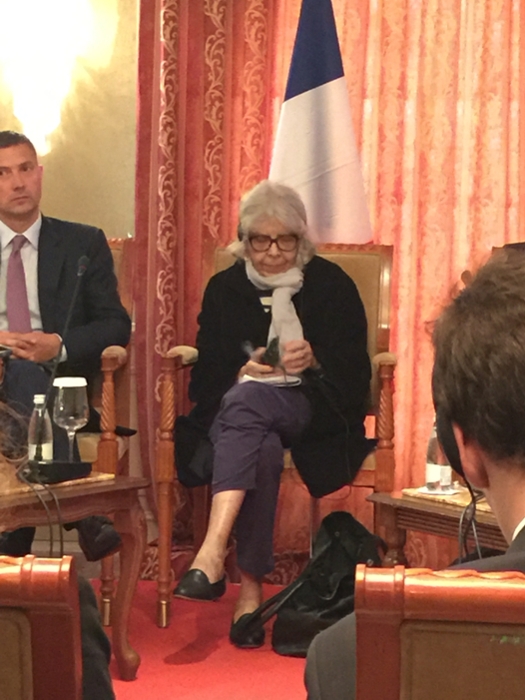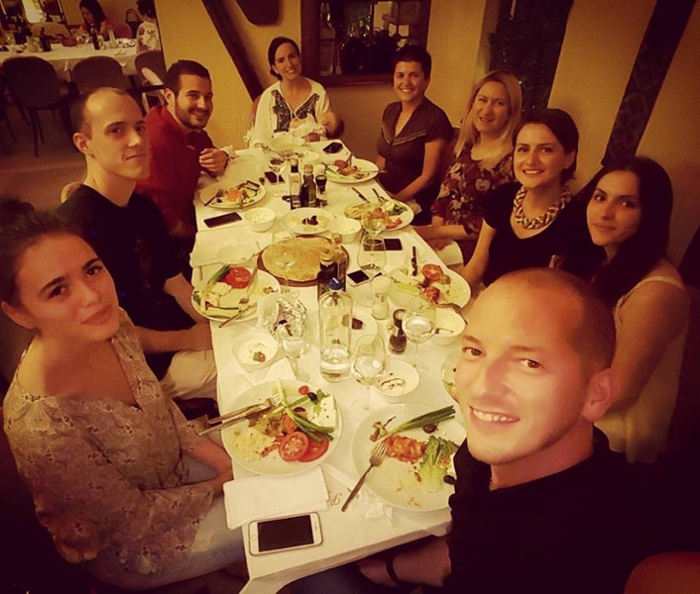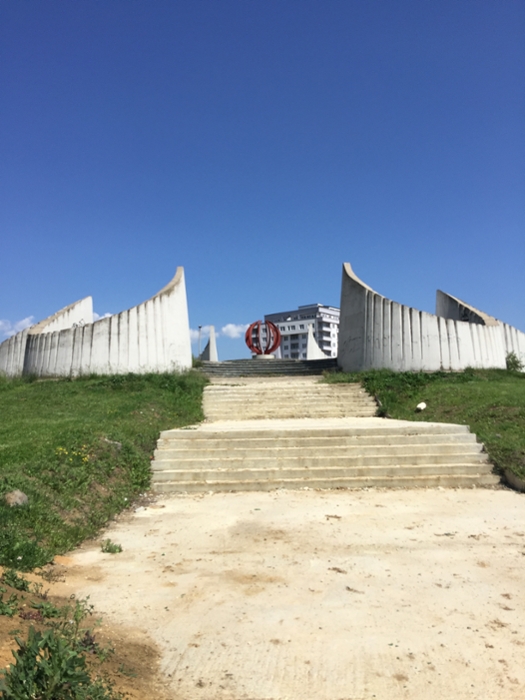Another Week in Pristina
Not much has changed since the outgoing director left D4D and the new acting director took over his desk. I am still working with the previous director, editing papers and documents for him via email. The paper on higher education is finally properly cited, and has been sent for translation into Albanian. I met with the old director for lunch one day and he mentioned a possible companion paper, concerning vocational education in Kosovo. This topic was discussed at a recent salon. The general consensus among those present was that vocational training programs are under-utilized. Most students choose to attend four-year universities, gaining skills less applicable to market needs than those they could gain through a vocational education. However, no representatives from businesses were present at the salon. Six human resources directors from Kosovo-based companies were invited to speak at the salon. Five refused the invitation; the sixth agreed to come but did not show up. This is a common problem with the salons. The speakers are generally from government or the University of Pristina; the private sector is rarely represented.
On the morning of the 21st, I attended a conference at the Swiss Diamond Hotel on the central square. A number of my coworkers have pointed the hotel out to me as we have passed it, calling it the nicest hotel in Kosovo. I must admit that the interior is quite ornate, and nicer than any hotel I have been in before. The conference, set in the hotel's Ulpiana Room, was held to inform members of Kosovo's civil society about the forthcoming Regional Youth Cooperation Office (RYCO). RYCO's founders intend for it to improve relations between Balkan nations (especially Serbia and Kosovo), while also addressing the high youth unemployment in the region. The main office will be in Tirana. The event featured a panel including ministers of Kosovo's goverment and the ambassadors from France, Germany, and Austria. Each panel member gave a short speech on the positive impacts this new program will have. They all said essentially the same thing: the youth are the future, their talents need to be utilized, and they must work together across borders. Many of the speakers referenced the post-WWII relations between Germany and France as a a model for the program. This is not the first time I have seen the relationship between France and Germany held up as an example for normalization of relations between Kosovo and Serbia. The audience was not quite as enthusiastic about the new program as the members of the panel. Only twenty minutes were allotted for questions from the audience. Many attendees wished to have more specific details about how exactly RYCO would achieve its goals, and many also voiced disappointment at the apparent lack of involvement of civil society in the creation of the office. The event was a generally self-congratulatory affair, but I appreciated the opportunity to observe an example of interactions between government officials and NGOs in Kosovo. I also found the French ambassador, with her thick glasses and thicker accent, quite charming.

One evening, the D4D staff met at a restaurant to observe iftar, the evening meal at which those who observe Ramadan break fast for the day. The restaurant had a fixed menu for the evening. My coworkers informed me that most restaurants in the city serve only pre-determined courses for iftar. When I worked as a cook, the evenings when we served only a set menu were some of the most fun nights, as they were a good deal less stressful and hectic than regular nights. I imagine Ramadan must be a nice break for cooks in Pristina, especially if they are fasting. The tables were set with plates of dates and turkish delights. Only one of my coworkers is still fasting; he told me that there is no specific meal that he eats for iftar, but that people eat more dates during Ramadan than the rest of the year. The servers brought out the first course of soup, and then at 8:24 announced that we were allowed to begin eating. This was followed by a delicious flat bread, accompanied by individual bowls of a mixture of cheese, cream, and peppers. Several more courses of various meats followed. A few of the D4D staff had seen on Facebook that it was my birthday, and surprised me with a cake after supper. I did not take this picture, but since I am tagged in it I figured I could include it here.

When I am not traveling on the weekends, I like to take walks around Pristina. There is a city park not far from my work with cafes and trees and benches. As I was leaving the park one Sunday, I saw that I was close to the top of the hill on which the park lies. I walked up to the top to see the view of the city. At the top I found a large grassy area, with a partially contructed amphitheatre and an odd structure at the center. Just before the very top lay about thirty raised coffins. They were not fenced in, so I could walk among them and read the words on each coffin. Apparently those buried on the hill were all soldiers during the Kosovo War.


It is a bit jarring constantly being reminded that each Kosovar I meet here, and everyone my age, has lived through war and occupation. I have heard a few personal stories from those I've met. One woman told me that her father was imprisoned by Serbians for ten years, and that, as a child, she did not recognize him when he was released. Before my trip to Tirana, I asked one coworker if he had spent much time there. "Of course," he said. "My family were refugees there for a year during the war." (Many of my questions are answered with "Of course." I'm not sure if this is what Kosovars are taught to say in English, or if I just ask really obvious questions.) At one lunch with the former director, an Albanian working at the Japanese embassy told me about moving to London when he was eighteen to avoid joining the military. However, the point of his story was not fleeing his country to escape forced military service; it was about how in London he first met a gay person. "Thank god I am not like them," he said with a laugh. "But they are very good with women."
From what coworkers have told me, Kosovo seems to have a complicated relationship with gay people. During my first week at D4D, the director told me that the organization had recently officially endorsed LGBT rights, though he did not elaborate on what that meant. D4D recently conducted a survey of MPs and their views on certain issues. When asked about LGBT rights, most respondents indicated they believed that members of the LGBT community deserve certain rights, but did not feel that they should advocate for these rights publicly. In May, a parade in Pristina marked the International Day Against Homophobia. Hashim Thaci, the president of Kosovo, notably took part in the march. The march was not announced ahead of time, in order to avoid possible violence. The next day, I found a number of D4D's staff in the office kitchen intensely discussing something in Albanian. One explained to me that they were arguing at the march the day before. I did not ask what exactly the disagreement pertained to.